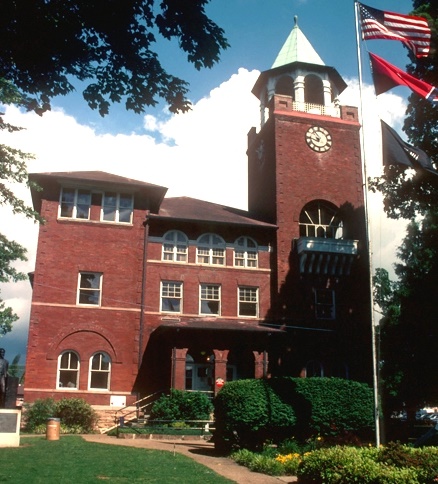 DAYTON, Tenn. – A humanist organization that has repeatedly fought against public displays of prayer or Christianity is now raising funds to erect a statue in a courthouse lawn of Clarence Darrow—the promoter of evolution in the famous Scopes “Monkey” Trial.
DAYTON, Tenn. – A humanist organization that has repeatedly fought against public displays of prayer or Christianity is now raising funds to erect a statue in a courthouse lawn of Clarence Darrow—the promoter of evolution in the famous Scopes “Monkey” Trial.
The American Humanist Association (AHA) is a group based in Washington, D.C., that believes in “good without a god.” In addition to promoting humanism, the AHA opposes many public displays of prayer, scripture, or Christianity.
As previously reported, the AHA threatened last year to file a lawsuit against a Georgia school district because the district did not prohibit football coaches from leading prayers. The AHA has similarly threatened to sue the Missouri National Guard for allowing a display of Bibles, a Mississippi school district after a pastor delivered a sermon and prayer at a convocation, an Air Force base for requiring a serviceman to say “so help me God” in an oath, and another Georgia school district for displaying two Bible verses on school property.
Now, the humanist organization is supporting an effort to erect a statue of Clarence Darrow on the grounds of the Rhea County Courthouse in Dayton, Tennessee. The courthouse is where Darrow famously defended the teaching of evolution in the Scopes “Monkey” Trial of 1925.
“The trial brought the teaching of evolution to public attention in an unprecedented way,” the AHA’s website notes. “The AHA and members of the Dayton, TN community hope to honor Clarence Darrow with a statue to celebrate his contributions to American civil liberties and the law.”
Sculptors Zeno and Rosalie Frudakis first proposed the statue idea, and the AHA is now raising funds for the project.
The Scopes trial of 1925 was a pivotal moment in the creation-evolution debate, as Darrow, a self-professed agnostic, sought to ridicule Christianity and the Bible’s teachings about the origin of life. William Jennings Bryan, a Christian and skilled orator, articulated arguments against evolution.
During the 12-day trial, Darrow and Bryan argued over the right of high school teacher John Scopes to teach evolution in the local Rhea County high school. Though a Tennessee law prohibited the teaching of evolution at the time, Darrow saw the highly-publicized trial as an opportunity to discredit Bryan’s Christianity, the Bible, and biblical creation.
“My object and my only object,” Darrow later remembered, “was to focus the attention of the country on the program of Mr. Bryan and the other fundamentalists in America.”
Over the course of the trial, Darrow repeatedly attacked the Bible’s reliability.
“Much of Darrow’s effort at the trial amounted to a caustic diatribe against the Bible and Christianity,” wrote Ken Ham and Dr. David Menton in an article on the Answers in Genesis website. “His anti-Christian hostility was so intense that there was fear on the part of liberal theologians and organizations that supported his evolutionary views that he might turn popular opinion against them. Darrow even turned his anger and hostility against Judge John T. Raulston by repeatedly interrupting and insulting him, for which he was cited for contempt of court.”
If the AHA’s fundraising efforts are successful, then Darrow will be memorialized with a statue on the very courthouse lawn where the Scopes trial took place 90 years ago. Proponents of the project argue that placing a statue of Darrow on the courthouse lawn would be fair, as there is already a statue of Bryan on the lawn. However, many Christians argue that Darrow’s legacy is not one of civil liberties or scientific progress, but rather secular immorality and evolutionary indoctrination.
“After years of such indoctrination, a generation has now arisen that is also (logically) rejecting the morality based on the Bible,” Ham and Menton wrote. “Today, with, for example, the removal of the Ten Commandments from public places, we are seeing the increasing elimination of the Christian foundational structure in the nation.”
Become a Christian News Network Supporter...


